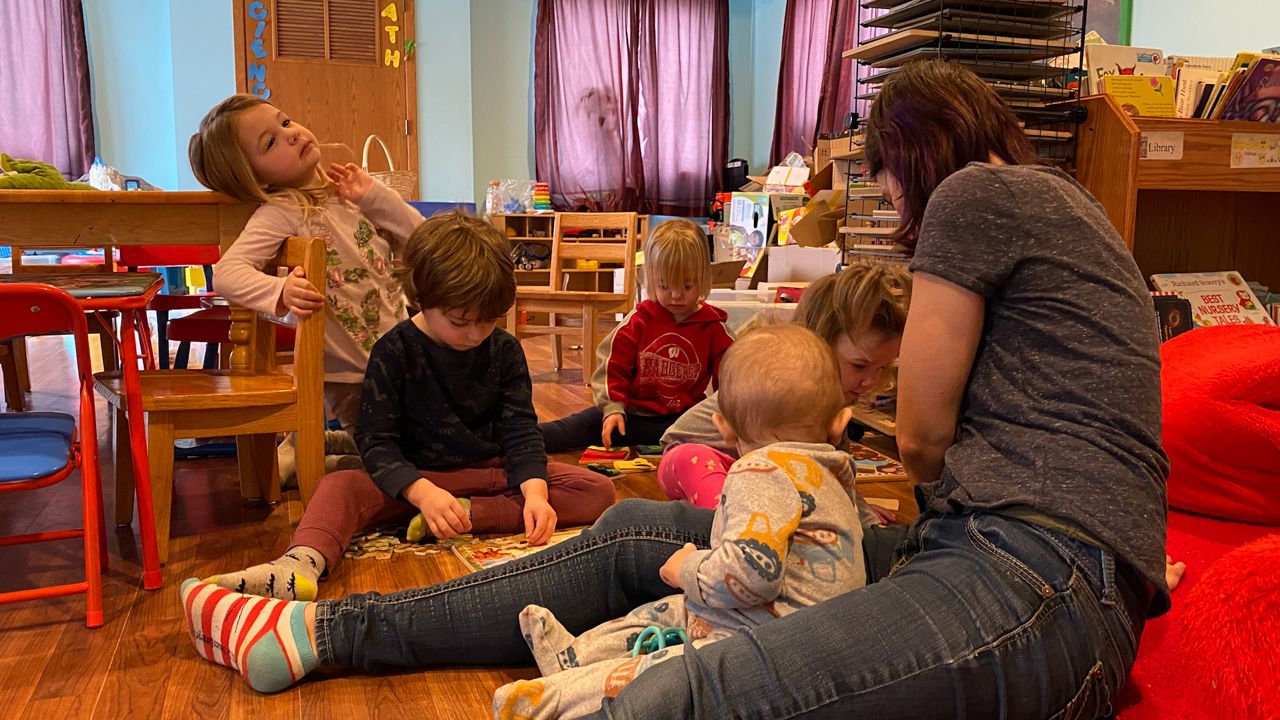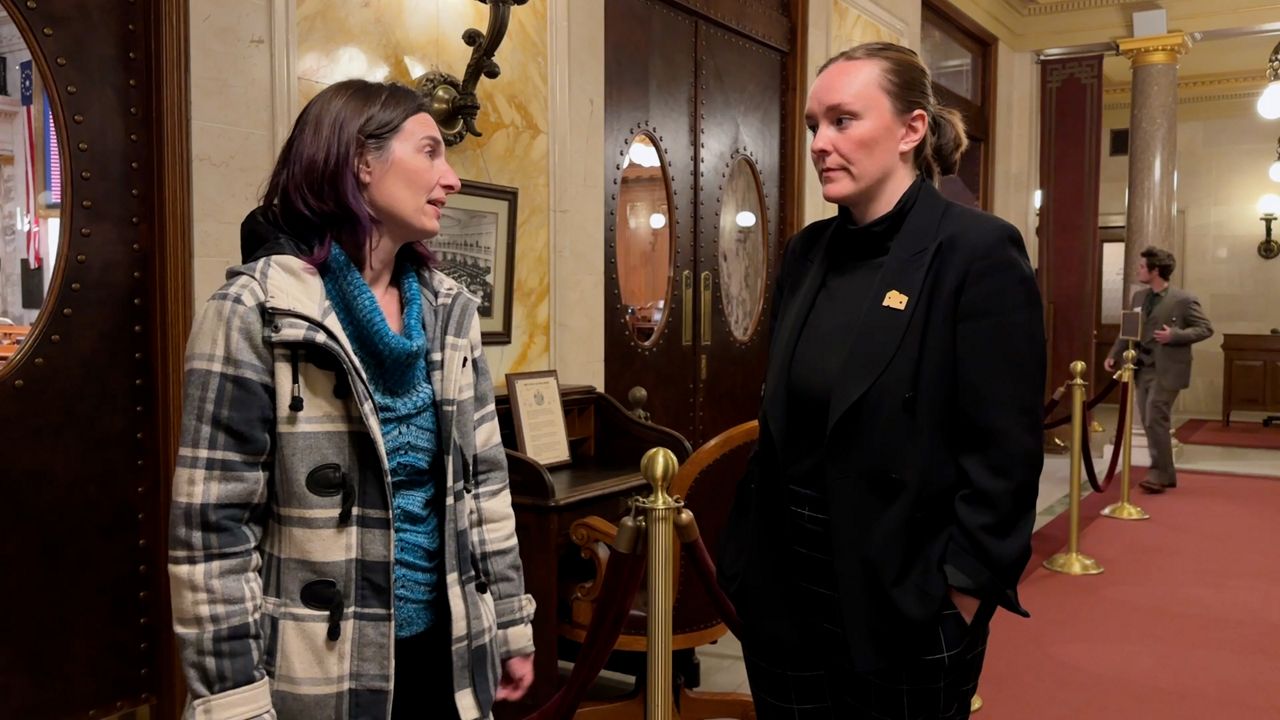MADISON, Wis. — During last week’s budget address, Gov. Tony Evers laid out a spending plan totaling in at $104 billion, which included a proposed boost in funding for child care programs as the state faces workforce woes.
Corrine Hendrickson has operated a child care center out of the basement of her New Glarus, Wis., home for nearly 15 years. She started the business after a few of her pregnant friends couldn’t find suitable care.
“Without us, parents can’t work. Without us, school costs go up. Without us, basically, the communities crumble,” Hendrickson explained.
More than a decade after Corrine’s Little Explorers was started, there is still a shortage of care that is affordable.
“We can’t put all of it on the backs of parents because they can only afford so much, and we have so many fixed costs,” Hendrickson said. “Insurance costs, property taxes, our mortgage — food is one of my biggest expenses — and we don’t want to make it so that there’s fewer adults per [child] because this is 90% of their brain development.”

Managing a business isn't easy for Hendrickson, who tries to charge what her families can afford to pay, while thinking about her own.
“That makes it difficult for me to support my two children and my husband and the two of us being able to do the things that we would like to do,” Hendrickson said.
A grant program started by the federal government during the COVID-19 pandemic has helped Hendrickson pay herself more, and she has been able to hire more help, too. However, Hendrickson said she might not be able to count on those funds by the end of the year.
“That has allowed me to keep my tuition steady for my families, but has increased my gross revenue by 25%, which then, again, allowed me to raise my own wages from $6 an hour to $12 an hour, but at the same time, if that funding stops in December because our state does not include it in the budget, I’m looking at raising my rates for my families by 25%,” Hendrickson explained.

Hendrickson, who attended last week’s budget address, said the increase would amount to $50 a week per child. For a family with two kids, that is an extra $5,000 a year.
“Employers really need to start thinking about this [because] it’s going to be a trickle effect,” Hendrickson said. “We thought 6% inflation was bad this last year, that’s 25% inflation just for child care.”
Now, Hendrickson said she is on a mission to convince lawmakers at the Capitol of how costly it might be to not spend some of the surplus on child care in Wisconsin.



